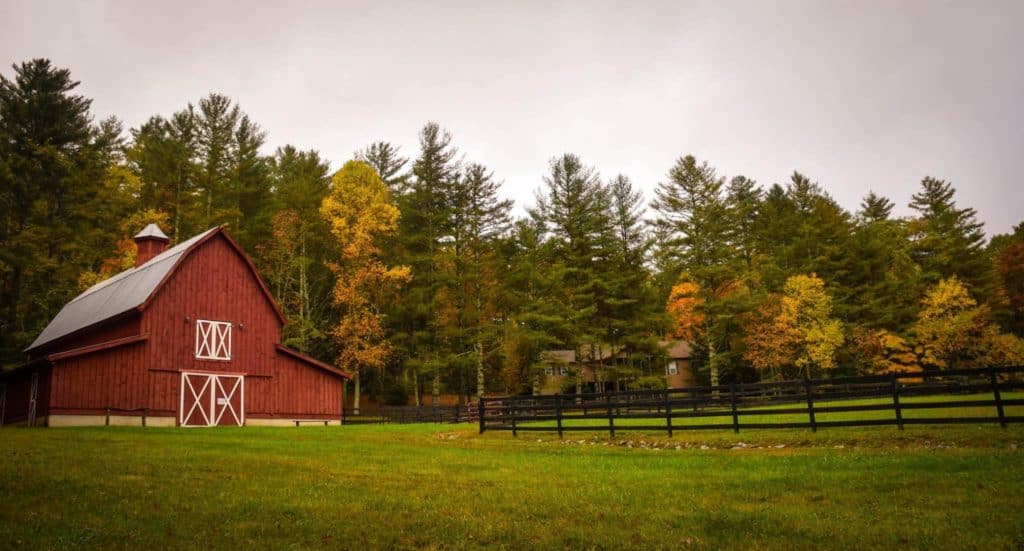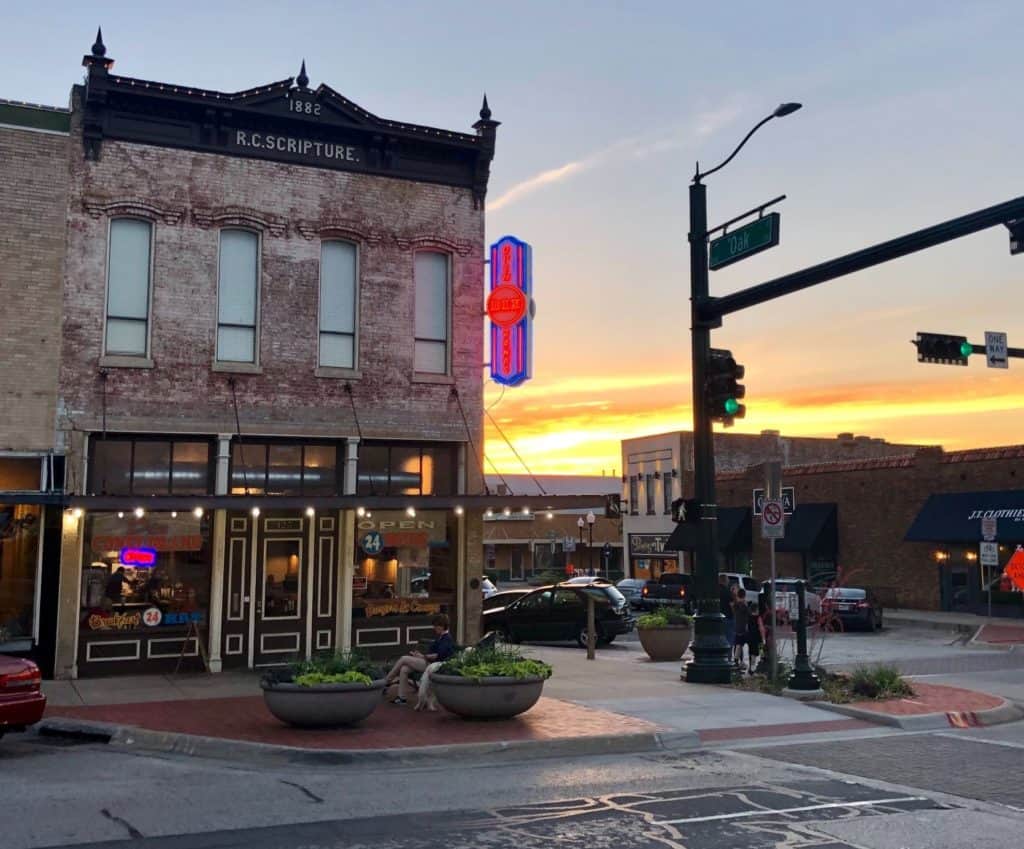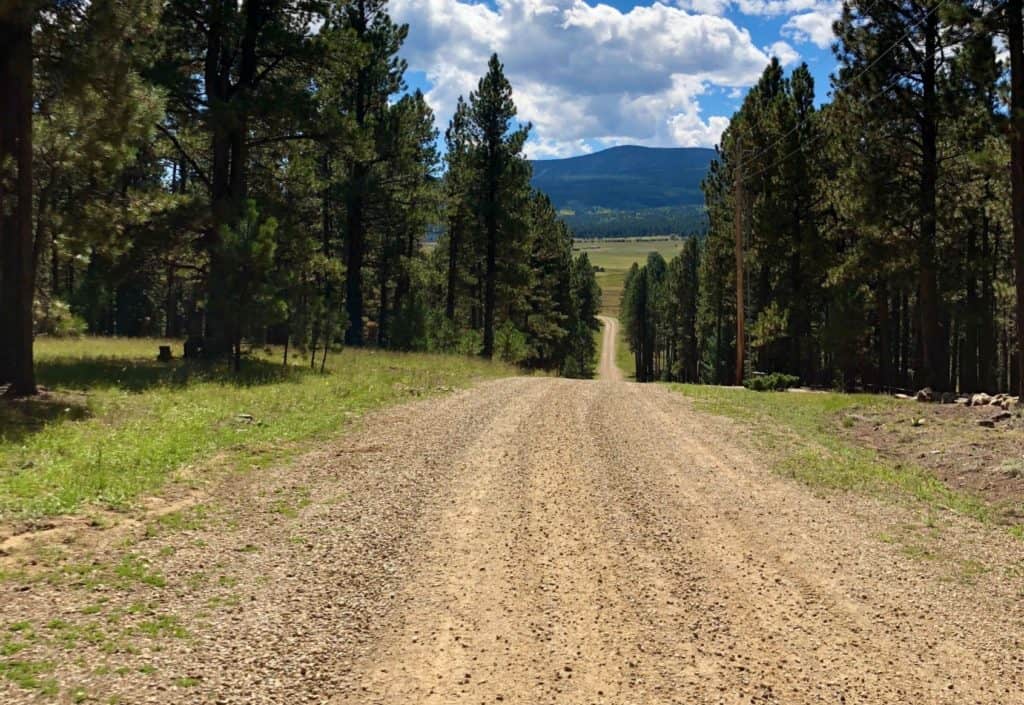
Suppose the prospect of seriously getting away from people living in a city or urban rat-race and live in the country, or another remote area attracts you. Have you considered all aspects of what it involves?
After having experienced this type of lifestyle for the past several years, I’ve come to realize some of its drawbacks. I was aware of it before because I was raised in rural America, but some I hadn’t considered.
Here are 17 disadvantages to living in rural and remote areas from my perspective and experience. Not all of these are going to fit every situation. It’s going to depend on where the property is located, what’s already available, and so forth.
1. Overall drawback to living remote or rural: it’s expensive.
The expense of getting set up for a lifestyle of living out and away on a rural or remote property is the biggest argument. The costs of living rural or remote are most likely the primary reason many people ever proceed with a plan to accomplish it.
- The property itself’s price. On average, for land with buildings, the price per acre in the USA for 2020 was $3,160. The price per acre for croplands was $4,100 and for just pasture, the price per acre was $1,400 with no changes from the previous year, 2019. (Data from USDA Land Values Summary 2020)
- Building a house or cabin of some type if one isn’t already on the land
- Then there are temporary living quarters while working on developing or improving your land. This can be an RV, travel trailer, popup tent, tiny house, or other live-in structures. Plus the cost of getting it to your property.
- The cost of having and maintaining dependable vehicles that can handle wear and tear. The stress placed on a vehicle potentially traveling longer distances to gather supplies, and a lot of that could be on undeveloped or gravel roads.
However, this is only the start of reasons for not living out and away from people and society.
2. Longer commute to get anywhere.
To get some milk and butter means a longer drive to the nearest grocery store. It won’t be anything like a larger community where grocery stores are usually not too far away.
In many cases, the closest stores in smaller towns are not the best stores for items you might need. Therefore forcing you to go out even further to a larger community where there’s a wider variety of stores to shop.
3. Lack of material provisions.

Being out and away means that, most likely, the town near you will be small with limited resources for you to buy things.
The small town near us has two grocery stores, three or so gas stations, two parts stores, one drug store, and one hardware, lumber store combination. Of course, there are other things like vets and banks, but so far, I’ve not seen anywhere to buy things like clothes, shoes, or something like a towel. Quaint little town
If you need something like a hard drive or computer memory, you better fuel up the vehicle and head 50 miles to a larger town. What takes 10 to 20 minutes in the suburbs or urban areas can become a 30 to 90-minute trip and even more one-way.
TIP: Do some comparative shopping during your research period about the area. Calculate the price differences into your overall results on the cost of living in that area.
4. Fewer healthcare options.
In smaller communities, the services offered in healthcare can be limited.
Also, how far away is the nearest hospital or medical care facility? If it’s a bit of a distance, then you’ll probably want to stock up on medical supplies that you might not typically have.
You and other family members may want to be certified in first aid of some type. Bottom line, if you know you have health issues, it’s important to research and determine if this is critical for you or your family.
5. Longer wait times.
Because there are fewer businesses, there is often a long wait time to get something delivered. This can be something coming through the mail or even something like getting a well drilled or gravel delivered to your property.
Most likely, this also means you’ll pay a little more for said services due to the remoteness and required windshield time.
6. Fewer job opportunities.
Smaller communities and remote locations have fewer job openings. Also, the pay would be a lot less than you’d find in a city, as well as benefits and advancement opportunities.
However, there is a bright side to this in today’s workforce. It’s becoming more commonplace to work from home.
Due to the COVID-19 pandemic, many companies realized just how easy and beneficial it is to have workers from their homes. This can be a win-win situation for both the business and the employee.
This same situation has also helped people start their own internet business.
7. Winter road conditions.
Depending on where you’re located, if there’s heavy snow, you could be waiting a while before the county or state road crews come by to remove the snow.
If you have a long driveway, then you’ll be responsible for getting the snow plowed. This will require additional equipment that will need to be stored and regularly maintained.
Then once the snow melts, there’s the possibility of potential floodwaters that can cause creeks and rivers to rise. If the water rises too high, it can wash out bridges and roads.
8. Gravel roads versus paved roads.

There’s a good chance of traveling on a gravel road in the country or up in the woods. Driving these roads may not sound all that bad until you experience rock chips and worn-out tires.
In our case, we are off a county road, and then part of our driveway is shared, and the neighbor doesn’t want to put any extra money in to improve it. Driving on this portion of our driveway feels like being inside a tumbler.
Unless it’s part of the county road, repairs and improvements will be the owners responsibility.
9. Children and their schooling.
If you have school-aged children, they’ll have longer bus rides to and from school depending on how far you’re out. If there’s no school bus service in your area, then you will be responsible for getting them to a bus drop or even all the way to and from the school building.
Then there’s the consideration of their after-school activities where you, again, will need to drive them to the activity and then pick them up once it’s done.
The alternative to this is to homeschool your children. However, that brings a whole new set of dynamics to a family.
10. Unavailability of certain utilities.
In most cases, rural and remote living will not offer grid-related services that city and urban living will. This would include:
- natural gas lines,
- sewer systems,
- city water, and
- garbage and recycling pickup.
These are items you’d have to figure out on your own. Depending on the circumstances, a water well might need drilling, a septic tank installed, a propane tank delivered and installed, along having to visit the local dump and recycling center periodically.
All of which come with a hefty price tag.
11. The need for electricity.
This is usually available in most locations. However, if it’s not already installed on your property, then there can be a big expense associated with getting it delivered there.
It’s not cheap to have the power company plant poles and run wire onto your land. Then once you have it, there’s the monthly bill that comes with the convenience.
Unfortunately, rural and remote locations will have incremental weather that can take trees down in turn, fall on a power line, and boom, everyone’s power is out. It can take days and even weeks to get a rural power line repaired, depending on how severe the storm.
Utility companies prioritize their work based on population, so rural and remote areas will be at the bottom of the list.
With that said, there could be the added expense of some form of alternative energy. This could include a generator, solar, water, or wind-powered backup system using batteries and an inverter.
Nowadays, there are also solar generators that are clean and quiet to operate as an option.
12. The lack of social interaction.
If you’re a social bug who likes being around other people a lot, whether in a movie, mall, or with friends, you’re going to suffer.
There are going to be fewer places nearby where people gather in a smaller community. There might be a movie theatre, but a mall isn’t likely.
Finding a few individuals or a group of people who share your common interests will also be a challenge due to the limited population.
13. Limited internet access.
Depending on your location, you may not have satisfactory speeds for your internet needs. There’s going to be a limit to the number of internet service providers available.
The satellite has been the only offering available for a long time in certain rural and remote areas. There could be other options now available based on cell towers and wifi.
To get the optimum speeds, you’d most likely need to invest in a particular type of antenna or a booster, possibly both, for a reliable connection to the outside world.
14. Bad cell phone reception.
Poor cell phone reception will vary based on your location. For many, the signal will be great, while others might have spotty reception. Then there’s the very unfortunate who have zero reception.
For us, we get three bars on our phones when up on a hill on the property. However, when we drop down off this little hill, we only get one bar in most cases.
Once we leave to head to town, we lose connection for about two and a half miles down our drive and a county road. When we reach the highway, it’s not until we climb to the top of a more significant hill that we will again get three or so bars.
15. Meager television channels.

Couch potatoes beware, there isn’t going to be 299+ channel cable or fiber television in the woods or most likely in the country. You can receive upwards of 20 channels using an external digital antenna that you’d mount in the attic or, better yet, on the roof.
Depending on your property and your goals, there isn’t going to be enough time to watch TV anyway. However, for some, this is an essential factor no matter where they live.
16. The equipment required to maintain the property.
When living out and away, there’s going to be a need for specific equipment, no matter how simple you live.
There are tools and equipment needed to grow a successful garden. In the winter, if you’re in a snowy region, you’ll need a way to remove that snow so you can move around.
Or a deep well water pump and a way to power it for your water needs. All of this can be very expensive, depending on what you feel you’ll need.
Then comes the cost of maintaining that equipment. A mechanic or service station could be miles away. So you’ll most likely, out of necessity, need to learn how to maintain and repair your stuff.
17. Hard physical never-ending work.
When living on a large parcel of land, there is never any lack of things to do. Much of that needing done requires hard physical labor.
It never seems like the work will ever end. The only time there might be a little bit of a slow down is in the winter, but even then, the to-do list is never too short.
If you’re on a small farm with animals, the work is year-round with no downtime.
Several Thoughtful Recommendations
If you’re looking to locate to the country or even possibly the woods in the mountains, here are some simple suggestions before actually making the big leap.
- Please get to know the area by visiting it as often as possible before actually making a move. If there’s a local town, get to know it. Drive around and learn the layout. Learn how long it takes to get from the property you’re looking at to the local market.
- Talk to the local people who reside there. You can do this by going into various stores and shops and ask them a few questions about the area. Visit a church group if you’re so inclined and fellowship with them as well. During the summer, visit any community activities such as farmers’ markets, flea markets, and even local fairs and rodeos.
- If possible, visit the area each season to see what they bring and allow you to experience them first hand.
- Find out if about local healthcare services. Is there an emergency clinic as well as a hospital? How many doctors are available in the area? What specialized practices do they offer?
Closing Thoughts
After reading this, you might think, why would anyone want to live like this? But there are also positive influences that you can read about in my post about the advantages of living rural or remote.
The life of living away from most of society and being self-reliant isn’t everything most people realize. It can be costly with a lot of hard work, but it’s all well worth it for me.
If you enjoyed this article please be sure to check out my other posts as well.
